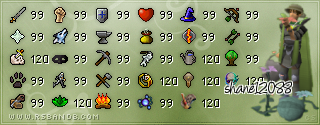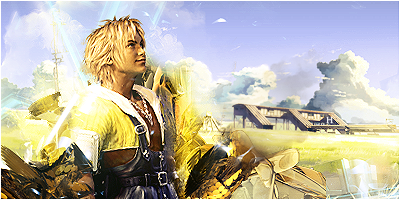Even though we live close we are
very different... It's very noticeable if you take a short trip (50km) across the border. One thing I'm going to point out before going into the other things you mention is our system. We use the metric system, so as soon as your cross you'll notice that our speed limits are in Km/hr. Also, if you go to a federal building you will see bilingual signs as French is also an official language.
GovernmentThis is perhaps the biggest difference. Our system is modeled after England and the
Westminster model. Your system is a congressional democracy. There is no direct equivalent of your President here. With the parliamentary system we have a Prime Minister who leads the country in parliament and is our main representative. The Prime Minister doesn't have the ability to create/veto laws. The party he represents must come up with the laws. He also isn't the head of our armed forces. The Prime Minister is typically the leader of the party elected that captured the most number of seats in the last general election.
Elections serve the purpose of electing the MP's that sit in the house of commons. We have a Senate but it doesn't do much nor have much power. It serves primarily as a "rubber stamp" service. At each election we go to the polls to elect a representative from our area, this representative then goes to Ottawa to sit on your behalf. In each election it's simple you just place an X next to the person you want to cast your vote for. Our system is known as "first-past-the-post" which simply means the candidate who wins the most seats in their riding wins, no runoffs. There are 308 seats nation wide, divided by population. This means of course that province that has the majority of the population (Ontario, yes, I'm looking at you Warren) has the majority of the seats. At present time Ontario has 106 seats while Alberta has 28, and each of the three northern territories that are scarcely populated only have 1. Moving back to Parliament, after the election has been held the party with the most seats will form the government. In our last elections the Conservatives formed a minority government with 143 seats. The key number to obtain a majority is 155. Minority governments simply mean that the governing party has to make compromises to get the votes of another party. Minority governments have lasted anywhere from 4 weeks to an entire term limit. If a party gets past the magic 155 mark they are free to govern as they want and do not need to rely on the votes of other parties. There is mixed debate on whether a minority or majority government is better. Right now as the Conservatives have 143 seats they have to rely on other parties to get confidence votes passed which is where I will go shortly. The default limit before an election must be called is 5 years, most majority governments wait at least 4 years. Finally it should be noted that the head of state it is not the Prime Minister, it is the Queen of England. However, since the Queen is in England she has a representative here known as the Governor General who is her representative. The Governor General signs all bills into law, starts and stops parliament, and can call an election. If the Queen was in Ottawa the day a new session of Parliament started she would be expected to open the session by reading a throne speech drafted by the ruling party.
In terms of process it's best to start at the beginning. Any MP can introduce a Bill on what are called Opposition Days. Most Bills however, are introduced by the ruling party. The Bill must past 3 readings and be debated by parliament before it moves on to the Senate. Each reading must pass with 50% + 1 approval meaning 50% of the House + 1 member. After each reading the Bill is reviewed by the Senate for amendment and recommendations. This process continues until third reading. By the time the Senate gets the Bill for the third time they serve primarily as a rubber stamp. Bills may pass or fail, if the Bill is deemed a confidence motion it must pass or the Government has to resign. When this happens the Governor General has to dissolve parliament and either call an election or ask another party leader to form a government.
Before I move on to Economy I want to talk a little bit about parties in Government. Right now we have 4 main parties which compete. Canada has a history of electing Liberal governments. When I say Liberal I am talking
centre-left not democratic soclialism as some of you may believe. Right now with a minority Conservative party in power they actually behave all over the damned political spectrum in order to get the votes of the Liberal party. At most our Conservative party nationally can be classed as
centre-right. Neo-conservatism does not work nationally as most of the people West of Alberta would not vote for something like this. The third party we have that really doesn't do well and really shouldn't exist is the NDP. They are the
democratic-socialist party. When I say they shouldn't exist, take that lightly. The reason I say that is because their existence is what prevents the Liberal party from forming consecutive governments due to vote splitting. Finally our fourth party is a special interest party, the Bloc Québécois. The Bloc were founded in the 80s with the goal of getting Quebec to be removed from Canada for various reasons (
separatists). The reasons embodying it are quite extensive and should be left for another topic

For the record I tend to vote Conservative and would vote for the great old Reform/Canadian Alliance if it still existed

If you have any more questions about government feel free to leave a reply since I may have been long winded on this part...
EconomyIn regards to our economy it's a great deal smaller than that of the US. It's split into main areas: Natural resources in the West, manufacturing in the central part of the country, and fisheries and off shore oil in the Atlantic. In the past the economic centre of Canada was Ontario and the manufacturing sector but this is slowly shifting (albeit halted right now) and will pick up again once we are out of the recession. It is shifting to an emphasis on oil in Alberta and off shore in the Atlantic. The baking and mortgage system in Canada is much more secure than in the US due to regulations. Everything else is pretty much standard with Canada being a member of the G8.
CultureCulturally is also different. While the US has a large number of Hispanics, Canada does not. Canada in the past has been praised on multiculturalism. Multiculturalism is that everyone can come here and keep their own distinct culture rather than in the US being subjected to the cultural mixing pot. Canada also has a vast aboriginal culture population as well. As I mentioned before French is also an official language even though the only officially bilingual province is New Brunswick. French is also taught in elementary school starting in grade 4.
What I've done here is given you a comprehensive rundown on government and touched on culture and the economy slightly. Government is one of my main interests. If you have any specific questions, please ask.
Oh and no... we don't live in Igloos.




























